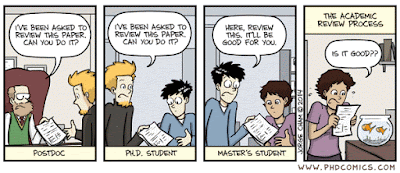Nose to the AI grinder and course dev ponderings

Well, it's been a hot minute since I last jotted down some thoughts. Don't worry. blog, it's not you, it's me 😂. I also have a daily meditation/reflection journal that I used to jot things down in, even though sometimes it was "Doogie Houser style," that only gets an entry twice or thirce a week. Gotta take a step back and do some more reflecting. On the plus side, the weather is finally nice enough to get out and do a daily walk, something I used to do most summers until work (in all its multiple facets) got to be a bit too much. In any case, you didn't come here to read about my (lack of?) exercise and my busy schedule, did you? I thought I'd jot down some thoughts since it is July and summer is one-third gone (sigh). One of the things that I am not making as much progress on as I would have liked is course design. In all honesty, I thought that by now I would have chosen all my readings for the fall, started to put them into Canvas, and have Augu...








